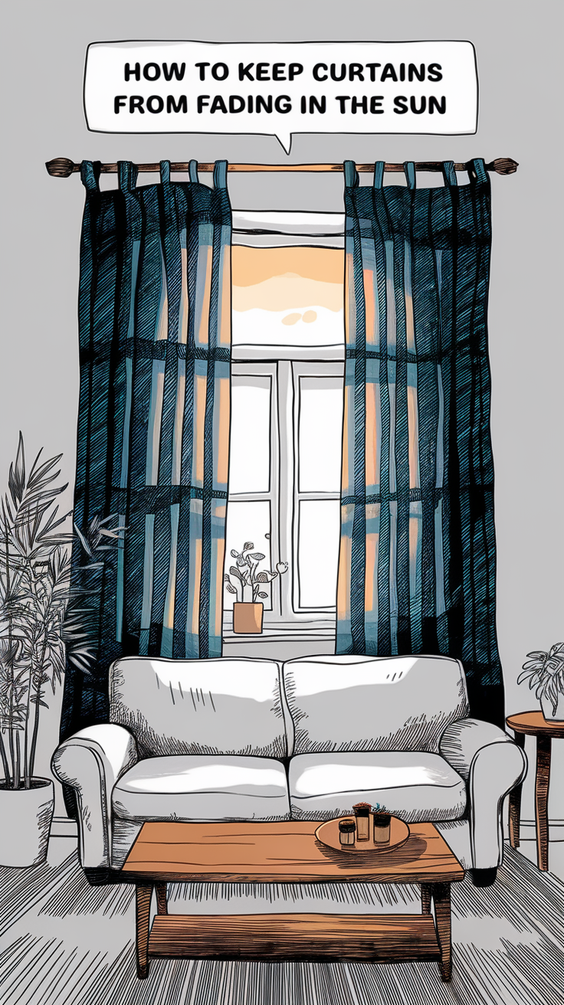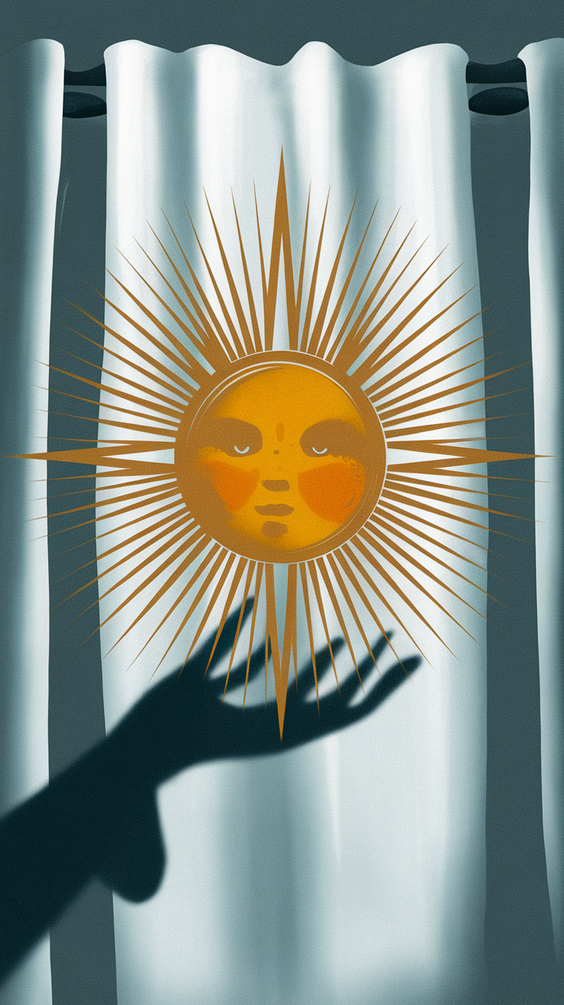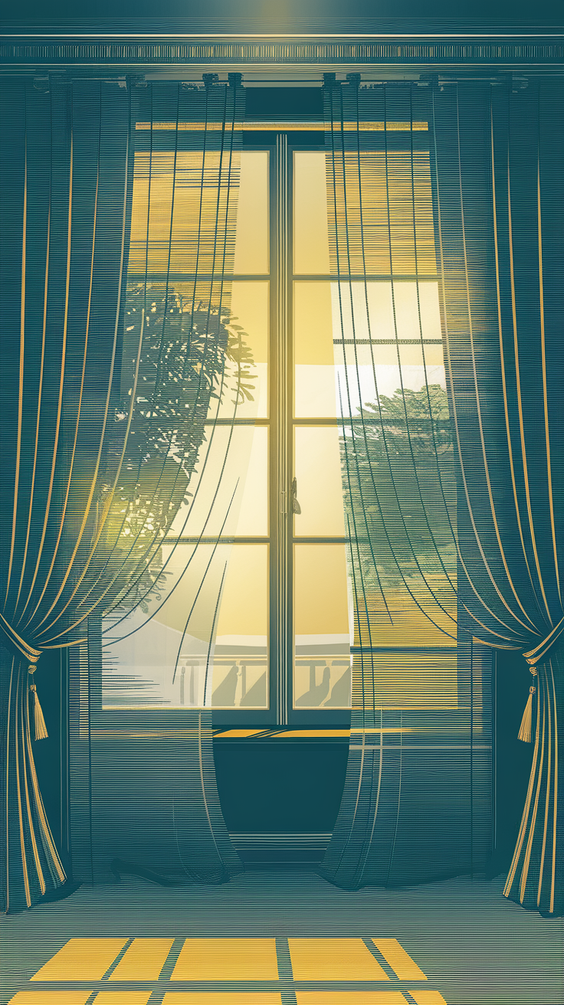How to Keep Curtains from Fading in the Sun in 2025: Expert Tips That Work

Introduction: Why Curtains Fade Faster Than You Think
The exposure of fabric dye to direct sunlight causes degradation of 60% of its color content during one summer season. You are among many who have observed their once vivid curtains becoming dull and discolored. The excessive sunlight in sunny U.S. regions causes curtain fading which primarily affects rooms with big windows.
This guide presents scientific and practical techniques which help stop sun-induced fading of your curtains. A step-by-step guide to selecting fabrics and implementing UV-blocking technology appears in our simple explanation.
Who should read this? Homeowners with large sunny windows, interior designers, renters wanting to preserve their drapes, and anyone looking to protect their decor investment.
What Causes Curtains to Fade in the Sun?
How UV Radiation Damages Fabric
The penetration of UV rays from sunlight into fabric fibers leads to dye molecule breakdown which results in noticeable discoloration of materials. Sun exposure creates two problems in fabric: it causes fading along with material weakening.
Additional Factors That Speed Up Fading
- Intensity of sunlight based on region
- Length of daily sun exposure
- Curtain material and dye quality
- Type of window glass and insulation
Have you ever considered that your window direction plays a role in accelerating the fading process of your favorite curtains?
How to Choose Sun-Resistant Curtain Fabrics
Best Materials for UV Protection
Naturally occurring fabrics demonstrate better UV resistance than other materials:
- Acrylic: Durable, colorfast, and moisture-resistant
- Polyester blends: Cost-effective and UV-resistant
- Solution-dyed synthetic fabrics: The color is baked in, not just surface-dyed
Fabrics to Avoid
- Silk: Beautiful but extremely fragile in direct sunlight
- Cotton: Natural but fades quickly unless treated
Quick Tip: Look for fabrics labeled as “UV-resistant” or “fade-proof.”
Fabric Durability Comparison Table
| Fabric Type | UV Resistance | Longevity | Price Level |
|---|---|---|---|
| Acrylic | High | Long | $$$ |
| Polyester Blend | Medium-High | Medium | $$ |
| Silk | Low | Short | $$$$ |
| Cotton | Low | Medium | $$ |
Top Window Treatments That Block Sunlight
Blackout Curtains vs. Thermal Curtains
Blackout curtains include heavy linings which successfully block 99% of sunlight. The dual benefit of thermal curtains consists of insulation properties with damage prevention and the ability to minimize energy expenses.
Using Liners and Backings to Extend Curtain Life
Main drapery protection comes from curtain liners which either attach as separate layers or are integrated through sewing.
Pro Tip: Liners can be replaced more affordably than the actual curtain set.
Innovative Technologies for UV Protection in 2025
Solar Films and Tinted Windows
Window glass protection comes from direct application of transparent UV-blocking film. These technological solutions prevent 80% of UV rays from entering the space without darkening your interior rooms.

Smart Glass and Automated Shading
Current smart glass technology switches its tinting state according to outdoor sunlight intensity. The combination of motorized shades with these products delivers optimal protection through automated systems.
Did You Know? Some smart window films can be controlled via smartphone app.
UV Block Comparison Chart
| Solution | UV Blocking Rate | Cost | Visibility Retained |
| Blackout Curtains | 99% | $$ | Low |
| Solar Film | 80% | $ | High |
| Smart Glass | 95% | $$$$ | Medium-High |
DIY Hacks to Keep Curtains from Fading
Rearranging and Rotating Curtains
Swap the position of curtain panels between left and right every few weeks. This evens out exposure.
Homemade UV-Blocking Sprays
DIY solutions that mix vinegar and sunscreen as ingredients produce uncertain results for UV protection. The use of commercial UV fabric sprays provides better results than homemade solutions.
Use of Tiebacks and Sheers
Opening curtains to sunlight peak periods with sheer drapes in place helps reduce UV exposure.
Have you tried rotating your curtains before? It’s a surprisingly simple fix!
Best Colors and Patterns That Hide Fading
Dark vs. Light Colors
Dark colors fade more quickly yet they effectively conceal fading at first. Lighter colors resist fading well although they reveal dust.
Patterns and Prints
Curtains with intricate patterns will better conceal fading than plain solid designs. Selecting tiny repeating patterns will deliver the optimal hiding result.
Design Tip: Go for a geometric print or abstract pattern in earth tones.
How to Care for Sun-Exposed Curtains Properly
Washing and Maintenance Tips
- Always use cold water
- Avoid harsh detergents
- Line dry in shade
When to Rotate or Replace Panels
High-exposure rooms? Periodically switch the panel positions throughout the seasons to distribute wear evenly.
Curtains looking tired? It might be time for a refresh, not just a wash.
Curtain Accessories That Help Block UV Rays
Valances and Pelmets
The top section of curtains has valances which shield fabric from sunlight.
Combining Layers for Maximum Protection
The initial UV defense layer should consist of blinds or roller shades or Roman shades placed beneath the curtains.
Budget-Friendly Ways to Protect Your Curtains
DIY Liners
Light-colored bedsheets together with muslin cloth serve as cost-effective curtain liners.
Reflective Covers
Car windshield shades function as temporary window reflectors to block sunlight during peak hours.
On a budget? Dollar-store shower curtains work wonders as temporary liners.
Common Mistakes That Lead to Curtain Fading
Ignoring Sun Path and Orientation
The strongest sunrays hit windows that face southward. Adjust your curtain strategy accordingly.
Wrong Cleaning Products
Strong detergents along with bleach cause curtains to fade more quickly. Always check product labels before using any cleaning solution.
Ever bleached a white curtain only to find it yellowed under the sun later? You’re not alone.
Checklist: How to Protect Your Curtains from Fading
When It’s Time to Replace Your Curtains
Signs of Irreversible Damage
- Stiff or brittle fabric
- Uneven color patches
- Torn or frayed areas
Recommended Replacement Cycle
Curtains in sunny rooms need replacement after 5-7 years but premature replacement becomes necessary if fading makes them unattractive.
Sometimes letting go is the best option—and a chance for a fresh new look!
Expert Recommendations and Product Picks for 2025
Top Curtain Brands with UV Protection
- Sunbrella Indoor Drapes – UV and mildew resistant
- Eclipse Blackout Panels – Budget-friendly and effective
- Pottery Barn Performance Curtains – Elegant and durable
Best UV-Blocking Window Films
- Gila Heat Control Window Film
- BDF Premium UV Blocking Film
- 3M Prestige Series (high-end homes)
Quick-Glance Table: Top Picks
| Brand/Product | Type | Best For | Price Range |
| Sunbrella Drapes | Fabric | Long-lasting interiors | $$$ |
| Gila Film | Window film | Renters | $ |
| 3M Prestige Series | Smart glass film | Smart homes | $$$$ |
Conclusion: What You Should Remember
A room receives its life energy from sunlight yet the light causes curtains to fade. The good news? Right fabric choices and modest dress changes enable curtain owners to protect their drapery investment.
Key takeaways:
- Opt for UV-resistant fabrics and blackout liners
- Use window films or smart glass where possible
- Don’t underestimate the power of simple curtain care
What about you? What strategies have you used to prevent fading? Your experiences should be shared through the comment section.

